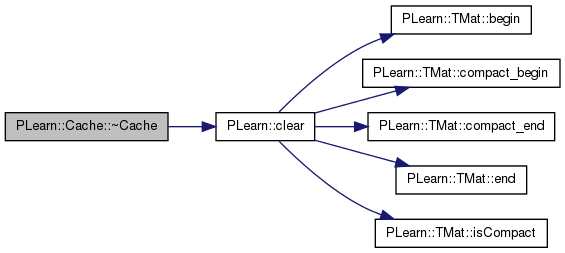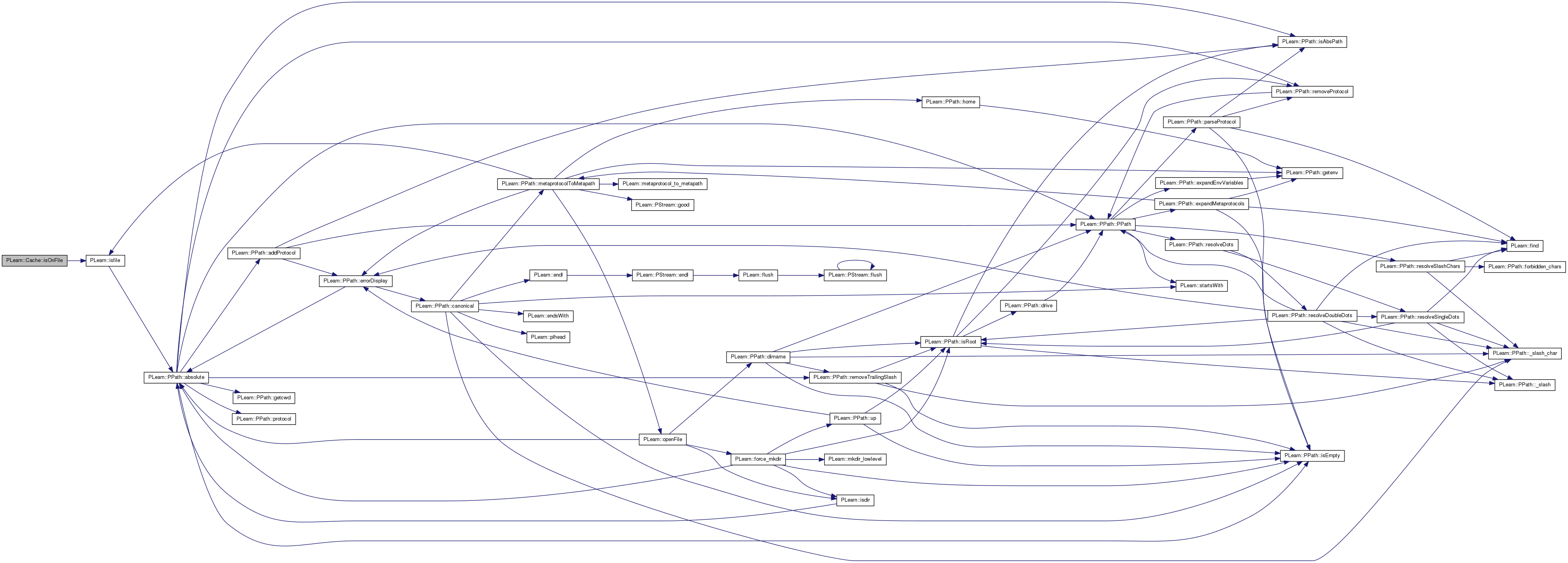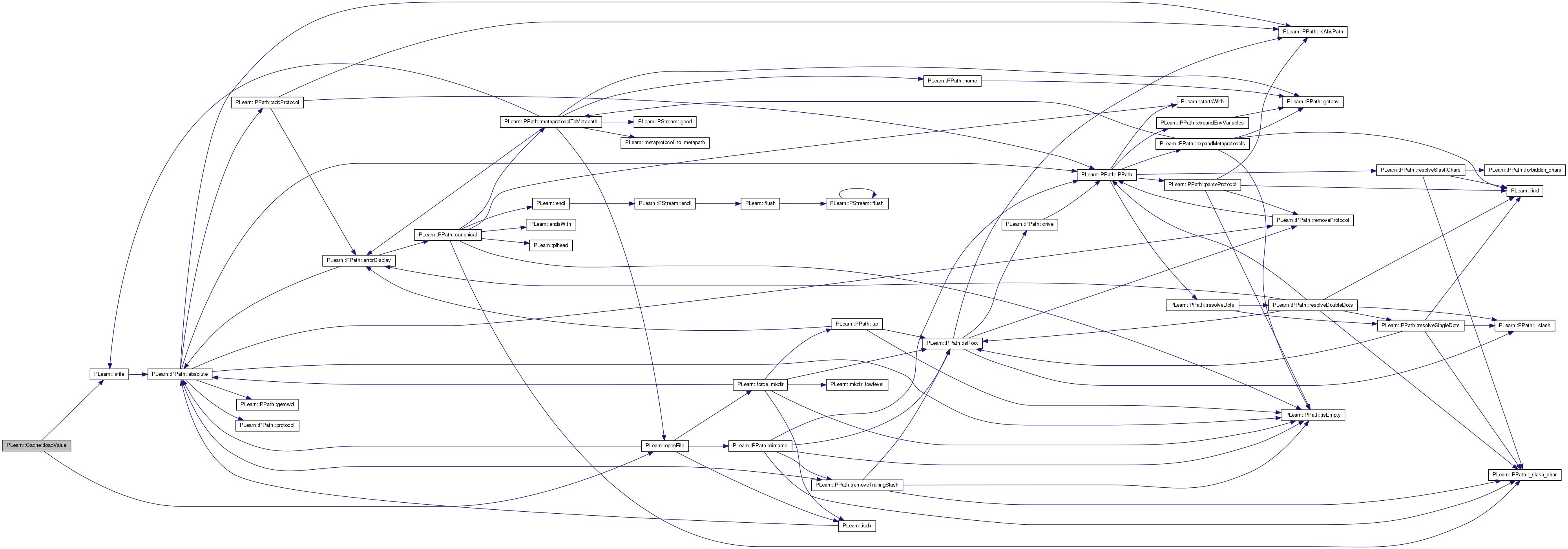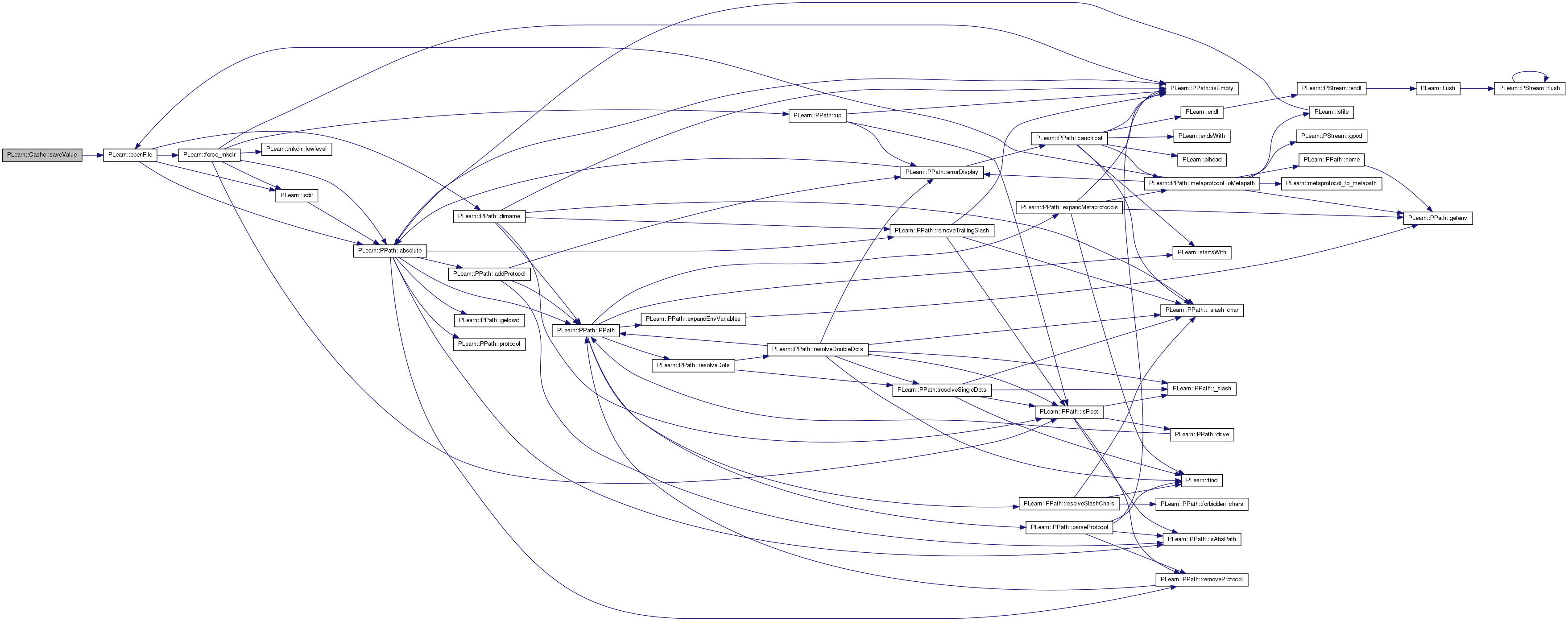|
PLearn 0.1
|
|
PLearn 0.1
|
Class description: More...
#include <Cache.h>


Public Member Functions | |
| Cache (string dir="cache", int max_memory_=0, bool singlefile=false) | |
| const ValueType * | operator() (const KeyType &key) const |
| Try to get value associataed with key. | |
| ValueType * | operator() (const KeyType &key) |
| bool | isCached (const KeyType &key) const |
| Check if this key is in cache. This does not change the access priority of the key. | |
| bool | isInMemory (const KeyType &key) const |
| string | filename (const KeyType &key) const |
| bool | isOnFile (const KeyType &key) const |
| void | clear () |
| virtual | ~Cache () |
| virtual void | synchronizeDisk () const |
Public Attributes | |
| bool | single_file |
| string | files_directory |
| PStream::mode_t | file_format |
Protected Member Functions | |
| ValueType * | loadValue (const KeyType &key) |
| void | saveValue (const KeyType &key, const ValueType &value) const |
| void | removeExcess () |
| remove last element until current_memory <= max_memory; | |
| void | removeAll () |
| remove all elements | |
Class description:
Similar semantically to a map<KeyType,ValueType>, except that a maximum memory usage can be set, and less frequently and less recently accessed elements that make memory usage go above that limit are saved to a file (either a single large file, only if elements all have the size size, or one file per element). The memory cache is implemented with a BoundedMemoryCache, to which this class adds the ability to store the less frequently accessed items on disk. The elements keys and values (of template types KeyType and ValueType respectively) must be serializable with PLearn's PStream's. If one file per entry is used, the KeyType must be convertible to a string with 'tostring(key)', which will be used as a suffix of the file name (before the .psave suffix). ONLY THE FILES ASSOCIATED TO THIS CACHE SHOULD BE STORED IN THE files_directory.
| PLearn::Cache< KeyType, ValueType >::Cache | ( | string | dir = "cache", |
| int | max_memory_ = 0, |
||
| bool | singlefile = false |
||
| ) | [inline] |
Definition at line 83 of file Cache.h.
: BoundedMemoryCache<KeyType,ValueType>(max_memory_), single_file(singlefile), files_directory(dir), file_format(PStream::plearn_ascii) {}
| virtual PLearn::Cache< KeyType, ValueType >::~Cache | ( | ) | [inline, virtual] |
Definition at line 128 of file Cache.h.
References PLearn::clear().

| void PLearn::Cache< KeyType, ValueType >::clear | ( | ) | [inline] |
Reimplemented from PLearn::BoundedMemoryCache< KeyType, ValueType >.
Definition at line 117 of file Cache.h.
References PLearn::clear(), i, PLearn::lsdir(), and PLearn::rm().
{
BoundedMemoryCache<KeyType,ValueType>::clear();
if (files_directory!="")
{
vector<string> filenames = lsdir(files_directory);
for (unsigned int i=0;i<filenames.size();i++)
rm(files_directory + "/" + filenames[i]);
}
}

| string PLearn::Cache< KeyType, ValueType >::filename | ( | const KeyType & | key | ) | const [inline] |
Definition at line 114 of file Cache.h.
References PLearn::tostring().
{ return files_directory + "/" + tostring(key) + ".psave"; }

| bool PLearn::Cache< KeyType, ValueType >::isCached | ( | const KeyType & | key | ) | const [inline] |
Check if this key is in cache. This does not change the access priority of the key.
Reimplemented from PLearn::BoundedMemoryCache< KeyType, ValueType >.
Definition at line 112 of file Cache.h.
{ return BoundedMemoryCache<KeyType,ValueType>::isCached(key) || isOnFile(key); }
| bool PLearn::Cache< KeyType, ValueType >::isInMemory | ( | const KeyType & | key | ) | const [inline] |
Definition at line 113 of file Cache.h.
{ return BoundedMemoryCache<KeyType,ValueType>::isCached(key); }
| bool PLearn::Cache< KeyType, ValueType >::isOnFile | ( | const KeyType & | key | ) | const [inline] |
Definition at line 115 of file Cache.h.
References PLearn::isfile().

| ValueType* PLearn::Cache< KeyType, ValueType >::loadValue | ( | const KeyType & | key | ) | [inline, protected] |
Definition at line 141 of file Cache.h.
References PLearn::isfile(), PLearn::openFile(), and PLERROR.
{
if (single_file)
{
PLERROR("Cache: single_file mode not yet implemented");
}
else
{
string fname = filename(key);
if (!isfile(fname))
return 0;
PStream filestream = openFile(fname, file_format, "r");
ValueType* v = new ValueType;
filestream >> *v;
return v;
}
return 0;
}

| ValueType* PLearn::Cache< KeyType, ValueType >::operator() | ( | const KeyType & | key | ) | [inline] |
Reimplemented from PLearn::BoundedMemoryCache< KeyType, ValueType >.
Definition at line 100 of file Cache.h.
{
ValueType* value_p = BoundedMemoryCache<KeyType,ValueType>::operator()(key);
if (value_p) // we have it in memory
return value_p;
// else check if we have it on file
value_p = loadValue(key);
if (value_p)
BoundedMemoryCache<KeyType,ValueType>::set(key,*value_p);
return value_p;
}
| const ValueType* PLearn::Cache< KeyType, ValueType >::operator() | ( | const KeyType & | key | ) | const [inline] |
Try to get value associataed with key.
If not in cache (either memory or disk) return 0, else return pointer to value. Recently accessed keys (with set or operator()) are less likely to be removed from memory (saved to disk).
Reimplemented from PLearn::BoundedMemoryCache< KeyType, ValueType >.
Definition at line 90 of file Cache.h.
{
ValueType* value_p = BoundedMemoryCache<KeyType,ValueType>::operator()(key);
if (value_p) // we have it in memory
return value_p;
// else check if we have it on file
value_p = loadValue(key);
if (value_p)
BoundedMemoryCache<KeyType,ValueType>::set(key,*value_p);
return value_p;
}
| void PLearn::Cache< KeyType, ValueType >::removeAll | ( | ) | [inline, protected, virtual] |
remove all elements
Reimplemented from PLearn::BoundedMemoryCache< KeyType, ValueType >.
Definition at line 192 of file Cache.h.
{
while (BoundedMemoryCache<KeyType,ValueType>::n_elements)
{
KeyType& key = BoundedMemoryCache<KeyType,ValueType>::doubly_linked_list->last->entry;
// STORE THE ELEMENT TO BE DELETED ON DISK:
pair<ValueType,DoublyLinkedListElement<KeyType>*> v = BoundedMemoryCache<KeyType,ValueType>::elements[key];
saveValue(key, v.first);
// BoundedMemoryCache<KeyType,ValueType>::current_memory -= sizeInBytes(BoundedMemoryCache<KeyType,ValueType>::elements[key]);
v.second=0; // this is just to help debugging, really, to help track wrong pointers
BoundedMemoryCache<KeyType,ValueType>::elements.erase(key);
BoundedMemoryCache<KeyType,ValueType>::doubly_linked_list->removeLast();
BoundedMemoryCache<KeyType,ValueType>::n_elements--;
}
BoundedMemoryCache<KeyType,ValueType>::current_memory = 0;
//int left_elements = BoundedMemoryCache<KeyType,ValueType>::n_elements;
}
| void PLearn::Cache< KeyType, ValueType >::removeExcess | ( | ) | [inline, protected, virtual] |
remove last element until current_memory <= max_memory;
Reimplemented from PLearn::BoundedMemoryCache< KeyType, ValueType >.
Definition at line 171 of file Cache.h.
References PLearn::sizeInBytes().
{
while (BoundedMemoryCache<KeyType,ValueType>::current_memory > BoundedMemoryCache<KeyType,ValueType>::max_memory)
{
KeyType& key = BoundedMemoryCache<KeyType,ValueType>::doubly_linked_list->last->entry;
// STORE THE ELEMENT TO BE DELETED ON DISK:
pair<ValueType,DoublyLinkedListElement<KeyType>*> v = BoundedMemoryCache<KeyType,ValueType>::elements[key];
saveValue(key, v.first);
BoundedMemoryCache<KeyType,ValueType>::current_memory -= sizeInBytes(BoundedMemoryCache<KeyType,ValueType>::elements[key]);
v.second=0; // this is just to help debugging, really, to help track wrong pointers
BoundedMemoryCache<KeyType,ValueType>::elements.erase(key);
BoundedMemoryCache<KeyType,ValueType>::doubly_linked_list->removeLast();
BoundedMemoryCache<KeyType,ValueType>::n_elements--;
}
//int left_elements = BoundedMemoryCache<KeyType,ValueType>::n_elements;
}

| void PLearn::Cache< KeyType, ValueType >::saveValue | ( | const KeyType & | key, |
| const ValueType & | value | ||
| ) | const [inline, protected] |
Definition at line 158 of file Cache.h.
References PLearn::openFile(), and PLERROR.
{
if (single_file)
{
PLERROR("Cache: single_file mode not yet implemented");
}
else
{
PStream filestream = openFile(filename(key), file_format, "w");
filestream << value;
}
}

| virtual void PLearn::Cache< KeyType, ValueType >::synchronizeDisk | ( | ) | const [inline, virtual] |
Definition at line 133 of file Cache.h.
{
typename map<KeyType,pair<ValueType,DoublyLinkedListElement<KeyType>*> >::const_iterator it = BoundedMemoryCache<KeyType,ValueType>::elements.begin();
typename map<KeyType,pair<ValueType,DoublyLinkedListElement<KeyType>*> >::const_iterator end = BoundedMemoryCache<KeyType,ValueType>::elements.end();
for (;it!=end;++it)
saveValue(it->first,it->second.first);
}
| PStream::mode_t PLearn::Cache< KeyType, ValueType >::file_format |
| string PLearn::Cache< KeyType, ValueType >::files_directory |
| bool PLearn::Cache< KeyType, ValueType >::single_file |
 1.7.4
1.7.4